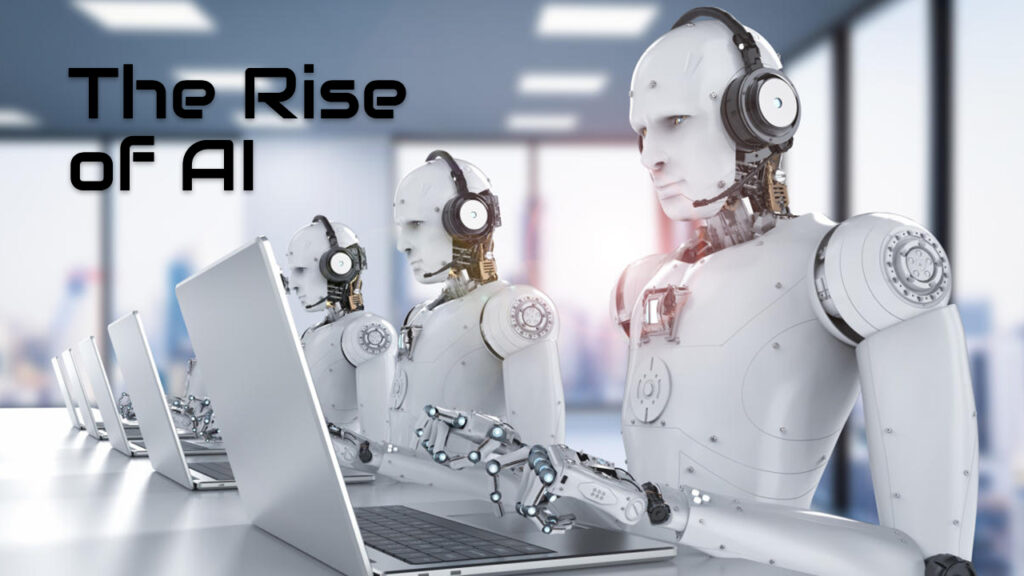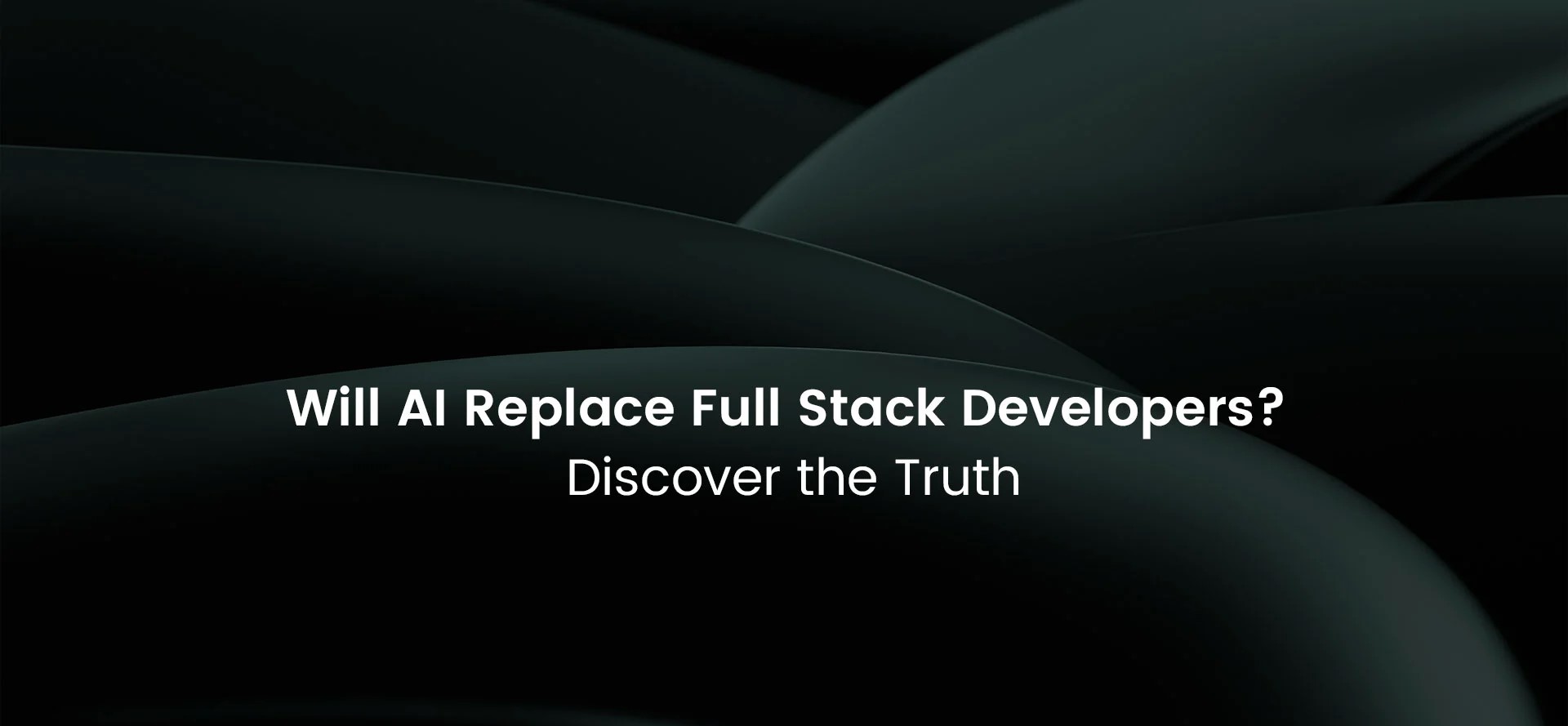The journey of Artificial Intelligence (AI) from a theoretical concept to a powerful technology has been fascinating, impacting nearly every industry, including software development. This article explores the evolution of AI, its current role in software development, and whether it could ever completely replace full-stack developers.
Table of Contents
ToggleThe Beginnings of AI
Artificial Intelligence as a field began in the mid-20th century. The term “artificial intelligence” was coined by John McCarthy in 1956 during the Dartmouth Conference. Early AI research focused on problem-solving and symbolic methods. However, progress was slow due to limited computing power and a lack of large datasets.
The Rise of AI

AI gained momentum in the 1980s and 1990s with the advent of machine learning, where systems could learn from data and improve over time. The development of deep learning in the 2010s, fueled by advancements in computational power and the availability of big data, marked a significant leap. AI began to outperform humans in specific tasks such as image recognition and game playing, demonstrating its vast potential.
AI in Software Development Today
AI is currently revolutionizing software development by automating repetitive tasks, improving code quality, and enhancing productivity. Here are some ways AI is impacting full-stack development:
- Code Generation: AI-powered tools can generate code snippets and even entire applications based on user specifications.
- Bug Detection: AI can identify and fix bugs in the code more efficiently than traditional methods.
- Testing: Automated testing tools use AI to perform comprehensive testing of software applications, ensuring they meet quality standards.
- Predictive Analytics: AI helps in analyzing trends and predicting future requirements, aiding developers in planning and decision-making.
The Human Touch: Why Full-Stack Developers Are Still Crucial ?
Despite these advancements, full-stack developers bring irreplaceable skills to the table:
- Creativity: Designing intuitive and user-friendly interfaces requires a level of creativity and empathy that AI currently lacks.
- Problem-Solving: Complex problem-solving often involves innovative thinking and contextual understanding, areas where human developers excel.
- Collaboration: Full-stack developers work closely with various stakeholders, understanding and translating business requirements into technical solutions.
- Adaptability: The tech landscape is constantly evolving. Human developers quickly learn and adapt to new technologies, frameworks, and paradigms.
The Future: Will AI Ever Fully Replace Full-Stack Developers?
Predicting the future of AI in full-stack development involves considering several factors:
- Technological Advances: AI continues to evolve rapidly. Future breakthroughs could make AI more adept at handling complex tasks, potentially reducing the need for human intervention.
- Human-AI Collaboration: The most likely scenario is a collaborative approach where AI handles repetitive and mundane tasks while humans focus on strategic and creative aspects.
- Ethical and Societal Factors: Replacing human developers entirely could raise ethical and societal concerns, such as job displacement and the need for human oversight in critical systems.
Timeline for Replacement
Predicting the future of AI in full-stack development involves considering several factors:
- Short-Term (Next 5-10 Years): AI will continue to augment developers’ capabilities, improving efficiency and reducing time spent on routine tasks.
- Medium-Term (10-20 Years): AI may handle more complex development tasks, but human oversight and creativity will remain essential.
- Long-Term (Beyond 20 Years): It’s possible that AI could take over many aspects of development, but a complete replacement of human developers is unlikely due to the inherent need for human creativity, problem-solving, and ethical considerations.
Additional Considerations
- Augmentation, Not Replacement: AI will likely augment human developers, making them more productive and efficient rather than replacing them entirely.
- Complexity and Creativity: Software development involves not only coding but also creativity, problem-solving, and critical thinking, which are difficult to replicate with AI alone.
- Emerging Technologies: New technologies and innovations will continue to emerge, requiring human expertise and judgment to implement and integrate.
- Ethical Oversight: The need for human developers to work alongside AI systems, ensuring they are used ethically and responsibly, will persist.
- Shifting Focus: The focus of developers may shift from writing code to higher-level tasks like designing systems, specifying requirements, and overseeing AI-generated code.
- New Job Roles: New job roles and specializations, like AI trainer, data curator, or ethics advisor, may emerge to support the development and deployment of AI systems.
While AI is transforming the landscape of software development, the complete replacement of full-stack developers is unlikely in the foreseeable future. AI will continue to serve as a powerful tool, augmenting human capabilities and allowing developers to focus on higher-level strategic and creative work. Embracing AI as a partner rather than a replacement will be key to thriving in the evolving tech landscape.
In summary, the future of software development is likely to be a collaboration between humans and AI, with each playing to their respective strengths.

Jugaad on Two Wheels: The Hilarious Bike Parcel Hack in Karnataka
The Great Karnataka Bike Parcel Hack: A Jugaad Masterclass #RapidoParcel: In a creative yet controversial move, ride-hailing platform Rapido has found a way around Karnataka’s

Denmark’s Digital Sovereignty Revolution: Linux and LibreOffice Lead the Way
Introduction to Denmark’s Bold Move In June 2025, Denmark’s Ministry of Digital Affairs made headlines by embracing digital sovereignty, ditching Microsoft Windows and Office 365

🏏Sports as a Business Strategy: Insights from Vijay Mallya’s RCB Ownership
🧠 Sports as a Business Strategy (Tool) In modern business, few platforms offer better engagement and emotional connection than sports. From football clubs in Europe

🙏 Apologies in Leadership: Vijay Mallya Public Apology
🧠 Introduction: The Role of Apologies in Leadership In the corporate world, apologies aren’t signs of weakness—they’re strategic acts of leadership. When made with sincerity

Audiobook Production Costs: Navigating Recording Artists, Studio Expenses, and AI’s Impact
The audiobook industry is booming, with over 130 million listeners in the U.S. alone in 2021 and a growing global appetite for audio content. Producing

Media Trial of Vijay Mallya: How Public Perception Shaped Vijay Mallya’s Legacy
Introduction: Media’s Influence on Business Narratives In today’s hyper-connected world, media narratives can make or break a business reputation. For Vijay Mallya, once known as


Very interesting details you have remarked, thanks for posting.
Thank you !!!